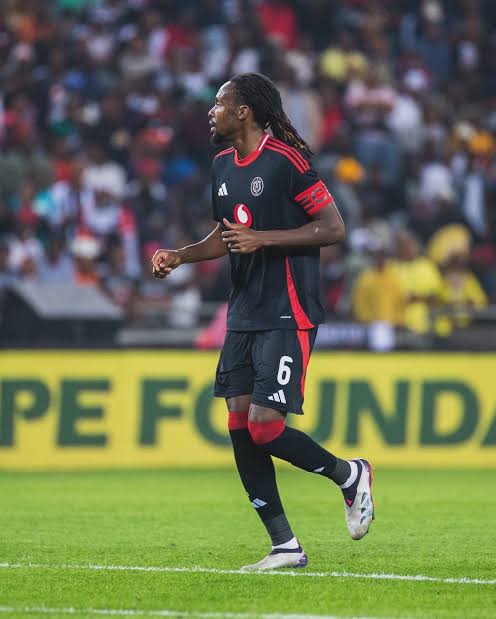Legendary Brazilian football player Pele has passed away. He was 82 years old and had been suffering from kidney and prostate ailments for some time.
Brazil is the most successful team in world cup football. The player who has the biggest contribution to this success of five-time world champion Brazil, the world knows him by the name of Pele.
Pele won the World Cup title for his team on three occasions. He was running unwell for some time, and sports lovers around the world are praying for his speedy recovery, but he died on Thursday due to organ failure.
The personality of Pele, who is called the magician of football, has been something that no footballer has been able to match to date.
In his presence, Brazil won the Football World Cup in 1958, 1962 and 1970. Pele is the only footballer in the world to have won three World Cups.
Along with this, the record of being the youngest to score a goal, make a hat-trick and play a final in the World Cup remains in Pele’s name even after 60 years.
The story of Pele’s name is as interesting as his charisma, which popularized football not only in Brazil but all over the world.
The most interesting thing is that a person famous all over the world by the name of Pele had neither a name Pele nor a nickname.
Pele was born on October 23, 1940, in Minas Gerais, a small town in Brazil. Father was a club-level footballer and mother a housewife. The parents named their son Edson.
Regarding the reason for keeping this name, Pele explained in his memoir ‘Why Soccer Matters’, “At the time when I was born, the electric bulb had arrived in our town, my parents used the light of the bulb. He was overwhelmed, so he named me in honour of Thomas Alva Edison, who created it, but he misspelt Edison.
This is how Pele got his name, Edson. Full name Edson Arantes do Nascimento. This is how names are kept long and wide in Brazil, so people’s nicknames also come into vogue.
In Brazil, usually, every person has one or two nicknames, by which their family members call them.
Edson i.e. Pele was also given the nickname – Dico. Pele’s parents, siblings and friends who knew him kept calling him by the name of Dicko.
Dicko’s father also played football himself, but due to an injury at the age of 25, his football career could not progress beyond the club level, so he dreamed of making his son a footballer.
His family had now come to live in Bauru city of Sao Paulo.
Due to the training received from childhood, the speciality of Pele started being discussed in the streets, but there was a lack of resources.
Pele sometimes used to play football by making a ball out of torn old clothes and sometimes he used to collect money for the ball by selling goods train goods disappearing from the neighbouring station.
At the age of 9-10, Dico started dodging his peers fast and no one could catch him, hence his new name, Gasolina.
The reason for this name was that they used to run fast like gas. According to Pele, he also liked this name to some extent.
But how did he get the name Pele? Many types of claims are made regarding this. A widely held claim is that Pele means football in the Gaelic language, hence the name Pele.
But this claim cannot be considered true, because Gaelic is a language around Ireland and there is no solid basis for how any of its words would have reached Bauru, Brazil, thousands of miles away at that time.
The word Pele is also in the Hebrew language, where it means miracle. But it was impossible for any word of Palestine and Israel to reach Brazil at that time.
In such a situation, the question is that how Pele got his name, Pele. At that time, the Portuguese language was prevalent in Brazil and the word Pele had no meaning in it.
But in spite of this, when Pele joined Brazil’s famous club Setons at the age of 15, he was named Pele.
Regarding the truth about being named Pele, Pele told in ‘Why Soccer Matters, “Nobody can tell exactly where the name Pele came from. But what my uncle George told me can be believed.” could.”
Pele’s maternal uncle, George, lived with him and for many years Pele’s family was supported by his job.
According to George, the name of a goalkeeper in the local football club team of Bauru was Bille, the same club that Pele’s father also played for. Bille was very popular due to his excellent goalkeeping.
“On the other hand, in his childhood, Dicko had to play the role of a goalkeeper in many matches, when he used to defend brilliantly, people started saying that he is another Bille, or look, he has started considering himself as Bille.”
No one could even guess when this Bille has turned into Pele in no time. However, this was the time when Diko used to fight with his colleagues who called me Pele, why did he call me, at least take my name properly.
However, the people of the neighbourhood came to know him by the name of Pele, but officially the practice of calling Pele started only after he joined the Santos club.
It’s not hard to guess that Santos’ managers played a key role in turning Pele into a brand.
Referring to this, Pele wrote in Why Soccer Matters, “Pelé is a The look was established, Edson was a poor boy from Bauru who missed his family, but on the other hand was Pele, a rising star in his teens, who was expected to be the greatest player in the world. Will be an athlete.”
“While Edson was a closed and shy boy in himself, Pele could smile at ease in front of a camera in a crowd of thousands, two faces of the same man, two different realities. One I knew, the other was new, changed. Was going on and was scaring me too.”
The Pele brand that Santos created at the age of 16, continues to shine six decades later, and even after Pele’s death at the age of 82, Pele will continue to be seen as the brand ambassador of football around the world.











.jpg&h=630&w=1200&q=100&v=5f99a4b43f&c=1)








Discussion about this post